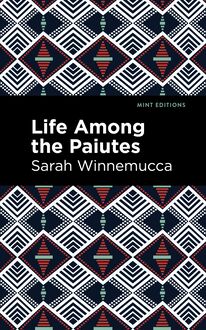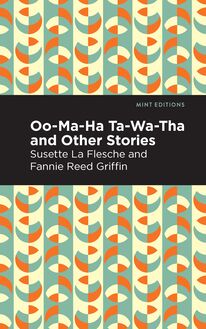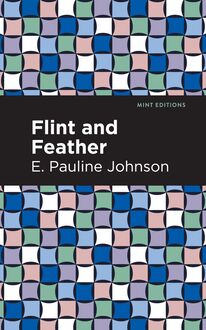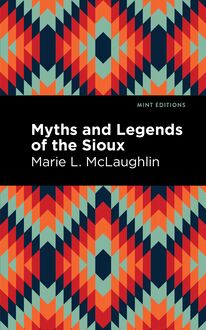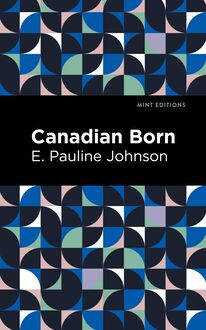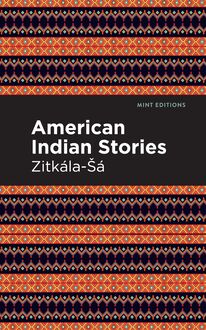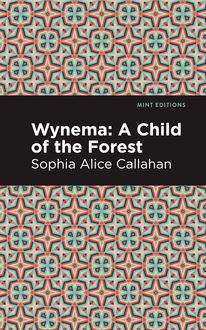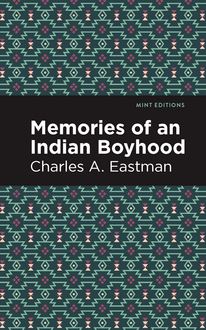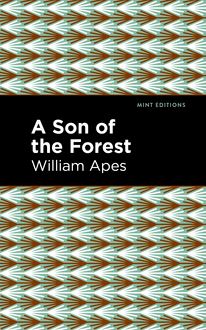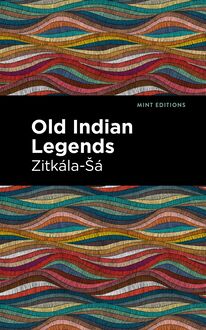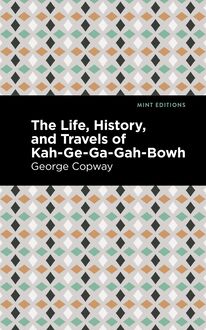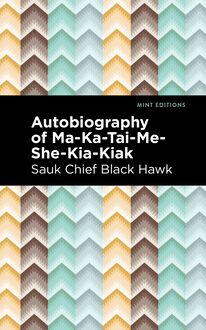-
 Univers
Univers
-
 Ebooks
Ebooks
-
 Livres audio
Livres audio
-
 Presse
Presse
-
 Podcasts
Podcasts
-
 BD
BD
-
 Documents
Documents
-
- Cours
- Révisions
- Ressources pédagogiques
- Sciences de l’éducation
- Manuels scolaires
- Langues
- Travaux de classe
- Annales de BEP
- Etudes supérieures
- Maternelle et primaire
- Fiches de lecture
- Orientation scolaire
- Méthodologie
- Corrigés de devoir
- Annales d’examens et concours
- Annales du bac
- Annales du brevet
- Rapports de stage
La lecture à portée de main
Vous pourrez modifier la taille du texte de cet ouvrage
Découvre YouScribe en t'inscrivant gratuitement
Je m'inscrisDécouvre YouScribe en t'inscrivant gratuitement
Je m'inscrisEn savoir plus
Vous pourrez modifier la taille du texte de cet ouvrage
En savoir plus

Description
Flint and Feather (1913) is a collection of the complete poems of E. Pauline Johnson. Revered as one the foremost Canadian poets of her time, Johnson was a prolific writer whose works explored her Mohawk heritage while shedding light on the racism and persecution faced by indigenous peoples across North America.
“The lyrical verse herein is as a ‘Skyward floating feather, / Sailing on summer air.’ And yet that feather may be the eagle plume that crests the head of a warrior chief; so both flint and feather bear the hall-mark of my Mohawk blood.” So states Johnson in the foreword to her complete poems, Flint and Feather, a collection that captures not only her range as a poet in tune with the Romantic tradition, but her dualistic sense of identity as a woman of Mohawk and English heritage. Choosing to emphasize the former, Johnson, who also went by Tekahionwake, her great-grandfather’s name, adopts the persona of an Indian wife who, watching her love depart, wonders what he will “suffer from the white man’s hand.” In fear, in anger, in desperation, she proclaims “By right, by birth we Indians own these lands, / Though starved, crushed, plundered, lies our nation low…” In the face of defeat, she offers a poetry in tune with the “ghost upon the shore,” the voices one hears “when the Northern candles light the Northern sky.” Johnson’s voice is thus both one of resistance and mourning, her song one of a land of plains and rivers, of fields that await the harvest despite the “prying pilot crow” whose “thieving raids” descend “[a]t husking time.”
With a beautifully designed cover and professionally typeset manuscript, this edition of E. Pauline Johnson’s Flint and Feather is a classic of Canadian literature reimagined for modern readers.
Sujets
Informations
| Publié par | Mint Editions |
| Date de parution | 02 mars 2021 |
| Nombre de lectures | 0 |
| EAN13 | 9781513277837 |
| Langue | English |
Informations légales : prix de location à la page 0,0450€. Cette information est donnée uniquement à titre indicatif conformément à la législation en vigueur.
Extrait
Flint and Feather
E. Pauline Johnson
Flint and Feather was first published in 1900.
This edition published by Mint Editions 2021.
ISBN 9781513277424 | E-ISBN 9781513277837
Published by Mint Editions ®
minteditionbooks.com
Publishing Director: Jennifer Newens
Design & Production: Rachel Lopez Metzger
Project Manager: Micaela Clark
Typesetting: Westchester Publishing Services
C ONTENTS A UTHOR ’ S F OREWORD B IOGRAPHICAL S KETCH T HE W HITE W AMPUM O JISTOH A S R ED M EN D IE T HE P ILOT OF THE P LAINS T HE C ATTLE T HIEF A C RY F ROM AN I NDIAN W IFE D AWENDINE W OLVERINE T HE V AGABONDS T HE S ONG M Y P ADDLE S INGS T HE C AMPER A T H USKING T IME W ORKWORN E ASTER E RIE W ATERS T HE F LIGHT OF THE C ROWS M OONSET M ARSHLANDS J OE: A N E TCHING S HADOW R IVER: M USKOKA R AINFALL U NDER C ANVAS: I N M USKOKA T HE B IRDS ’ L ULLABY O VERLOOKED F ASTING C HRISTMASTIDE C LOSE B Y T HE I DLERS A T S UNSET P ENSEROSO R E- V OYAGE B RIER: G OOD F RIDAY W AVE- W ON T HE H APPY H UNTING G ROUNDS I N THE S HADOWS N OCTURNE M Y E NGLISH L ETTER C ANADIAN B ORN C ANADIAN B ORN W HERE L EAPS THE S TE. M ARIE H ARVEST T IME L ADY L ORGNETTE L OW T IDE AT S T. A NDREWS (N EW B RUNSWICK ) B EYOND THE B LUE T HE M ARINER L ULLABY OF THE I ROQUOIS T HE C ORN H USKER P RAIRIE G REYHOUNDS G OLDEN —O F THE S ELKIRKS T HE S ONGSTER T HISTLE- D OWN T HE R IDERS OF THE P LAINS S ILHOUETTE A P RODIGAL “T HROUGH T IME AND B ITTER D ISTANCE ” A T H ALF- M AST T HE S LEEPING G IANT (T HUNDER B AY, L AKE S UPERIOR ) T HE Q UILL W ORKER G UARD OF THE E ASTERN G ATE A T C ROW ’ S N EST P ASS “G IVE U S B ARABBAS ” Y OUR M IRROR F RAME T HE C ITY AND THE S EA F IRE- F LOWERS A T OAST L ADY I CICLE T HE L EGEND OF Q U ’A PPELLE V ALLEY T HE A RT OF A LMA- T ADEMA G OOD- B YE M ISCELLANEOUS P OEMS I N G REY D AYS B RANDON (A CROSTIC ) T HE I NDIAN C ORN P LANTER T HE C ATTLE C OUNTRY A UTUMN ’ S O RCHESTRA (I NSCRIBED TO O NE B EYOND S EAS ) The Overture The Firs Mosses The Vine The Maple Hare-Bell The Giant Oak Aspens Finale T HE T RAIL TO L ILLOOET C ANADA (A CROSTIC ) T HE L IFTING OF THE M IST T HE H OMING B EE T HE L OST L AGOON T HE T RAIN D OGS T HE K ING ’ S C ONSORT W HEN G EORGE W AS K ING D AY D AWN T HE A RCHERS T HE W OLF T HE M AN IN C HRYSANTHEMUM L AND: W RITTEN FOR “ T HE S PECTATOR ” C ALGARY OF THE P LAINS T HE B ALLAD OF Y AADA (A L EGEND OF THE P ACIFIC C OAST ) “A ND H E S AID, F IGHT O N ” (T ENNYSON )
A UTHOR’S F OREWORD
T his collection of verse I have named “Flint and Feather” because of the association of ideas. Flint suggests the Red Man’s weapons of war; it is the arrow tip, the heart-quality of mine own people; let it therefore apply to those poems that touch upon Indian life and love. The lyrical verse herein is as a
“Skyward floating feather,
Sailing on summer air.”
And yet that feather may be the eagle plume that crests the head of a warrior chief; so both flint and feather bear the hall-mark of my Mohawk blood.
E.P.J.
B IOGRAPHICAL S KETCH
E . Pauline Johnson (Tekahionwake) is the youngest child of a family of four born to the late G. H. M. Johnson (Onwanonsyshon), Head Chief of the Six Nations Indians, and his wife, Emily S. Howells, a lady of pure English parentage, her birth-place being Bristol, England, but the land of her adoption was Canada.
Chief Johnson was of the renowned Mohawk tribe, and of the “Blood Royal,” being a scion of one of the fifty noble families which composed the historical confederation founded by Hiawatha upwards of four hundred years ago, and known at that period as the Brotherhood of the Five Nations, but which was afterwards named the Iroquois by the early French missionaries and explorers. These Iroquois Indians have from the earliest times been famed for their loyalty to the British Crown, in defence of which they fought against both French and Colonial Revolutionists; and for which fealty they were granted the magnificent lands bordering the Grand River in the County of Brant, Ontario, and on which the tribes still live.
It was upon this Reserve, on her father’s estate, “Chiefswood,” that Pauline Johnson was born. And it is inevitable that the loyalty to Britain and Britain’s flag which she inherited from her Red ancestors, as well as from her English mother, breathes through both her prose and poetic writings.
At an extremely early age this little Indian girl evinced an intense love of poetry; and even before she could write, composed many little childish jingles about her pet dogs and cats. She was also very fond of learning by heart anything that took her fancy, and would memorize, apparently without effort, verses that were read to her. A telling instance of this early love of poetry may be cited, when on one occasion, while she was yet a tiny child of four, a friend of her father’s, who was going to a distant city, asked her what he could bring her as a present, and she replied, “Verses, please.”
At twelve years of age she was writing fairly creditable poems, but was afraid to offer them for publication, lest in after years she might regret their almost inevitable crudity. So she did not publish anything until after her school days were ended.
Her education was neither extensive nor elaborate, and embraced neither High School nor College. A nursery governess for two years at home, three years at an Indian day school half a mile from her home, and two years in the central school of the City of Brantford was the extent of her educational training. But besides this she acquired a wide general knowledge, having been, through childhood and early girlhood, a great reader, especially of poetry. Before she was twelve years old she had read every line of Scott’s poems, every line of Longfellow, much of Byron, Shakespeare, and such books as Addison’s “Spectator,” Foster’s Essays and Owen Meredith.
The first periodicals to accept her poems and place them before the public were “Gems of Poetry,” a small magazine published in New York, and “The Week,” established by the late Professor Goldwin Smith, of Toronto, the “New York Independent,” and “Toronto Saturday Night.” Since then she has contributed to “The Athenaeum,” “The Academy,” “Black and White,” “The Pall Mall Gazette,” “The Daily Express,” and “Canada,” all of London, England; “The Review of Reviews,” Paris, France; “Harper’s Weekly,” “New York Independent,” “Outing,” “The Smart Set,” “Boston Transcript,” “The Buffalo Express,” “Detroit Free Press,” “The Boys’ World” (David C. Cook Publishing Co., Elgin, Illinois), “The Mothers’ Magazine” (David C. Cook Publishing Co.), “The Canadian Magazine,” “Toronto Saturday Night,” and “The Province,” Vancouver, B.C.
In 1892 the opportunity of a lifetime came to this young versifier, when Frank Yeigh, the president of the Young Liberals’ Club, of Toronto, conceived the idea of having an evening of Canadian literature, at which all available Canadian authors should be guests and read from their own works.
Among the authors present on this occasion was Pauline Johnson, who contributed to the programme one of her compositions, entitled “A Cry from an Indian Wife”; and when she recited without text this much-discussed poem, which shows the Indian’s side of the North-West Rebellion, she was greeted with tremendous applause from an audience which represented the best of Toronto’s art, literature and culture. She was the only one on the programme who received an encore, and to this she replied with one of her favourite canoeing poems.
The following morning the entire press of Toronto asked why this young writer was not on the platform as a professional reader; while two of the dailies even contained editorials on the subject, inquiring why she had never published a volume of her poems, and insisted so strongly that the public should hear more of her, that Mr. Frank Yeigh arranged for her to give an entire evening in Association Hall within two weeks from the date of her first appearance. It was for this first recital that she wrote the poem by which she is best known, “The Song my Paddle Sings.”
On this eventful occasion, owing to the natural nervousness which besets a beginner, and to the fact that she had scarcely had time to memorize her new poem, she became confused in this particular member, and forgot her lines. With true Indian impassiveness, however, she never lost her self-control, but smilingly passed over the difficulty by substituting something else; and completely won the hearts of her audience by her coolness and self-possession. The one thought uppermost in her mind, she afterwards said, was that she should not leave the platform and thereby acknowledge her defeat; and it is undoubtedly this same determination to succeed which has carried her successfully through the many years she has been before the public.
The immediate success of this entertainment caused Mr. Yeigh to undertake the management of a series of recitals for her throughout Canada, with the object of enabling her to go to England to submit her poems to a London publisher. Within two years this end was accomplished, and she spent the season of 1894 in London, and had her book of poems, “The White Wampum,” accepted by John Lane, of the “Bodley Head.” She carried with her letters of introduction from His Excellency the Earl of Aberdeen and Rev. Professor Clark, of Toronto University, which gave her a social and literary standing in London which left nothing to be desired.
In London she met many authors, artists and critics, who gave this young Canadian girl the right hand of fellowship; and she was received and asked to give recitals in the drawing-rooms of many diplomats, critics and members of the nobility.
Her book, “The White Wampum,” was enthusiastical
-
 Univers
Univers
-
 Ebooks
Ebooks
-
 Livres audio
Livres audio
-
 Presse
Presse
-
 Podcasts
Podcasts
-
 BD
BD
-
 Documents
Documents
-
Jeunesse
-
Littérature
-
Ressources professionnelles
-
Santé et bien-être
-
Savoirs
-
Education
-
Loisirs et hobbies
-
Art, musique et cinéma
-
Actualité et débat de société
-
Jeunesse
-
Littérature
-
Ressources professionnelles
-
Santé et bien-être
-
Savoirs
-
Education
-
Loisirs et hobbies
-
Art, musique et cinéma
-
Actualité et débat de société
-
Actualités
-
Lifestyle
-
Presse jeunesse
-
Presse professionnelle
-
Pratique
-
Presse sportive
-
Presse internationale
-
Culture & Médias
-
Action et Aventures
-
Science-fiction et Fantasy
-
Société
-
Jeunesse
-
Littérature
-
Ressources professionnelles
-
Santé et bien-être
-
Savoirs
-
Education
-
Loisirs et hobbies
-
Art, musique et cinéma
-
Actualité et débat de société
- Cours
- Révisions
- Ressources pédagogiques
- Sciences de l’éducation
- Manuels scolaires
- Langues
- Travaux de classe
- Annales de BEP
- Etudes supérieures
- Maternelle et primaire
- Fiches de lecture
- Orientation scolaire
- Méthodologie
- Corrigés de devoir
- Annales d’examens et concours
- Annales du bac
- Annales du brevet
- Rapports de stage
